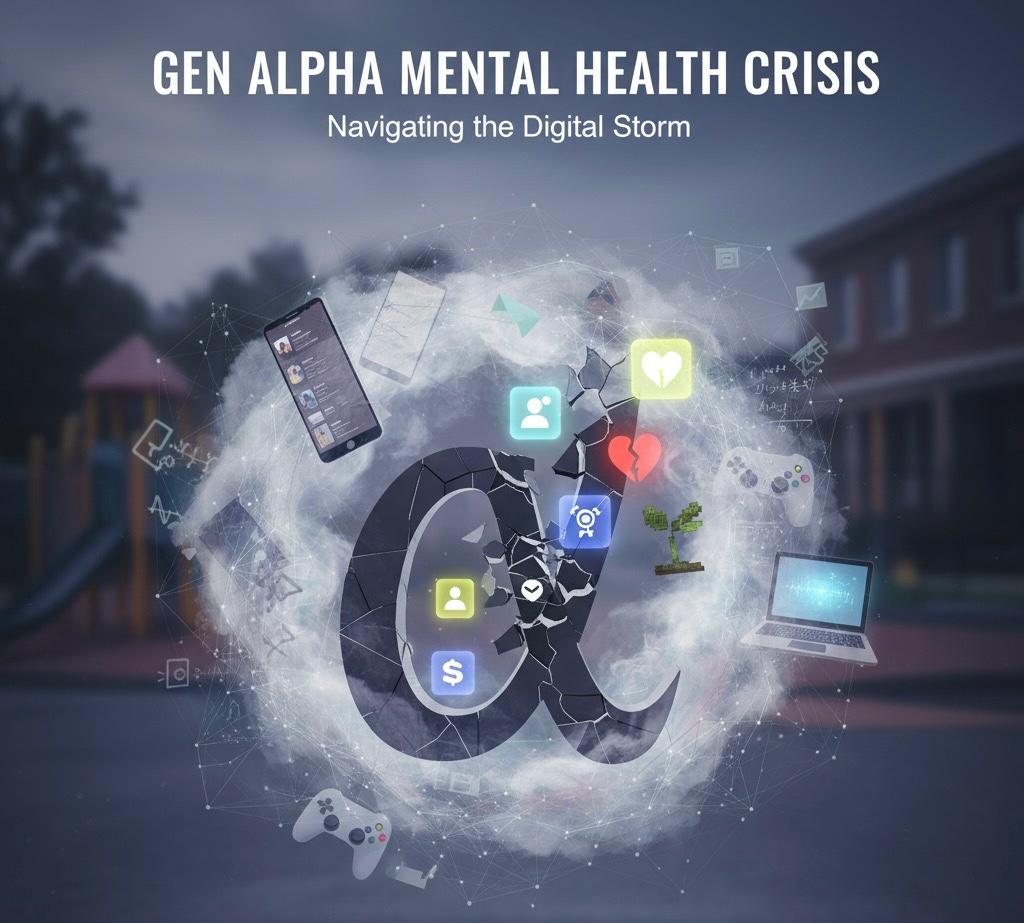Major Depressive Disorder (MDD), also known as clinical depression, is a severe mental health condition that affects millions of people worldwide. Characterised by persistent feelings of sadness and a lack of interest in previously enjoyable activities, MDD significantly impacts daily functioning and quality of life. This article explores the nature of MDD, its symptoms, causes, and available treatment options, supported by scientific research and expert opinions.
Keywords: major depressive disorder, clinical depression, symptoms of depression, depression treatment, mental health, Australian psychology
Understanding Major Depressive Disorder
Major Depressive Disorder is a mood disorder that profoundly impacts how individuals feel, think, and handle daily activities. According to the Diagnostic and Statistical Manual of Mental Disorders, Fifth Edition (DSM-5), MDD is diagnosed when an individual experiences at least five of the following symptoms for a minimum of two weeks (American Psychiatric Association, 2013).
Symptoms of Major Depressive Disorder
1. Emotional Symptoms
MDD manifests through various emotional symptoms that severely affect an individual’s quality of life.
- Persistent Sadness: Continuous feelings of sadness, emptiness, or hopelessness (APA, 2013).
- Loss of Interest: A significant decrease in interest or pleasure in most activities (NIMH, 2018).
- Feelings of Worthlessness: Excessive or inappropriate feelings of guilt or worthlessness (Beck, 1967).
2. Physical Symptoms
MDD also presents with numerous physical symptoms, which can sometimes be mistaken for other medical conditions.
- Fatigue: Persistent tiredness or lack of energy, even with adequate rest (APA, 2013).
- Sleep Disturbances: Insomnia or hypersomnia nearly every day (NIMH, 2018).
- Appetite Changes: Significant weight loss or gain unrelated to dieting (WHO, 2017).
3. Cognitive Symptoms
Cognitive impairments are common in individuals with MDD, affecting their ability to function effectively.
- Difficulty Concentrating: Problems focusing or making decisions (APA, 2013).
- Indecisiveness: Frequent trouble making decisions (WHO, 2017).
- Suicidal Thoughts: Recurrent thoughts of death or suicidal ideation (NIMH, 2018).
Causes of Major Depressive Disorder
The exact cause of MDD is unknown, but it is believed to result from a combination of genetic, biological, environmental, and psychological factors.
1. Genetic Factors
Family studies have shown that genetics play a significant role in the development of MDD.
- Heritability: Research indicates that MDD has a heritability rate of about 40% (Sullivan et al., 2000).
- Genetic Variations: Specific genetic variations may increase the risk of developing depression (Levinson, 2006).
2. Biological Factors
Biological differences in the brain and neurotransmitter imbalances are linked to MDD.
- Neurotransmitter Imbalance: Imbalances in neurotransmitters such as serotonin, norepinephrine, and dopamine are associated with MDD (Hirschfeld, 2000).
- Brain Structure: Imaging studies show differences in the size and function of certain brain regions in people with MDD (Sheline, 2000).
3. Environmental Factors
Environmental factors, including life events and stress, can trigger or exacerbate MDD.
- Life Events: Traumatic or stressful events such as the loss of a loved one, divorce, or job loss can trigger depression (Kendler et al., 1999).
- Chronic Stress: Prolonged exposure to stress can lead to the development of MDD (Hammen, 2005).
4. Psychological Factors
Certain personality traits and cognitive patterns can predispose individuals to MDD.
- Personality Traits: Traits such as low self-esteem and a pessimistic outlook can increase the risk of MDD (Beck, 1967).
- Cognitive Patterns: Negative thought patterns and cognitive distortions are common in individuals with MDD (Beck, 1967).
Treatment Options for Major Depressive Disorder
Effective treatment for MDD often involves a combination of medication, psychotherapy, and lifestyle changes.
1. Medication
Antidepressant medications are commonly used to treat MDD and can help correct neurotransmitter imbalances.
- Selective Serotonin Reuptake Inhibitors (SSRIs): Commonly prescribed antidepressants that increase serotonin levels in the brain (Stahl, 1998).
- Serotonin and Norepinephrine Reuptake Inhibitors (SNRIs): These medications increase both serotonin and norepinephrine levels (Stahl, 1998).
- Tricyclic Antidepressants (TCAs): An older class of antidepressants that are effective but have more side effects (Nemeroff, 2003).
2. Psychotherapy
Psychotherapy, also known as talk therapy, is an effective treatment for MDD.
- Cognitive-Behavioural Therapy (CBT): A type of psychotherapy that helps individuals change negative thought patterns and behaviours (Beck, 1967).
- Interpersonal Therapy (IPT): Focuses on improving interpersonal relationships and resolving life events that may contribute to depression (Klerman et al., 1984).
- Psychodynamic Therapy: Explores past experiences and unconscious processes that influence current behaviour (Leichsenring, 2001).
3. Lifestyle Changes
Incorporating certain lifestyle changes can also help manage symptoms of MDD.
- Regular Exercise: Physical activity can reduce symptoms of depression and improve overall mood (Craft & Perna, 2004).
- Healthy Diet: A balanced diet rich in nutrients can support mental health (Jacka et al., 2010).
- Sleep Hygiene: Maintaining a regular sleep schedule and creating a restful environment can improve sleep quality (NIMH, 2018).
Conclusion
Major Depressive Disorder is a complex and debilitating condition that requires a comprehensive approach to treatment. Understanding the symptoms, causes, and available treatment options is crucial for effective management and recovery. By combining medication, psychotherapy, and lifestyle changes, individuals with MDD can achieve significant improvements in their mental health and overall wellbeing.
References
- American Psychiatric Association. (2013). Diagnostic and statistical manual of mental disorders (5th ed.). Arlington, VA: American Psychiatric Publishing.
- Beck, A. T. (1967). Depression: Clinical, experimental, and theoretical aspects. University of Pennsylvania Press.
- Craft, L. L., & Perna, F. M. (2004). The benefits of exercise for the clinically depressed. Primary Care Companion to the Journal of Clinical Psychiatry, 6(3), 104-111.
- Hammen, C. (2005). Stress and depression. Annual Review of Clinical Psychology, 1, 293-319.
- Hirschfeld, R. M. A. (2000). History and evolution of the monoamine hypothesis of depression. Journal of Clinical Psychiatry, 61(Suppl 6), 4-6.
- Jacka, F. N., Kremer, P. J., Leslie, E. R., Berk, M., Patton, G. C., Toumbourou, J. W., & Williams, J. W. (2010). Associations between diet quality and depressed mood in adolescents: Results from the Australian Healthy Neighbourhoods Study. Australian & New Zealand Journal of Psychiatry, 44(5), 435-442.
- Kendler, K. S., Kessler, R. C., Walters, E. E., MacLean, C., Neale, M. C., Heath, A. C., & Eaves, L. J. (1995). Stressful life events, genetic liability, and onset of an episode of major depression in women. American Journal of Psychiatry, 152(6), 833-842.
- Klerman, G. L., Weissman, M. M., Rounsaville, B. J., & Chevron, E. S. (1984). Interpersonal psychotherapy of depression. Basic Books.
- Leichsenring, F. (2001). Comparative effects of short-term psychodynamic psychotherapy and cognitive-behavioral therapy in depression: A meta-analytic approach. Clinical Psychology Review, 21(3), 401-419.
- Levinson, D. F. (2006). The genetics of depression: A review. Biological Psychiatry, 60(2), 84-92.
- National Institute of Mental Health (NIMH). (2018). Depression: What you need to know. Retrieved from https://www.nimh.nih.gov/health/publications/depression-what-you-need-to-know
- Nemeroff, C. B. (2003). The role of GABA in the pathophysiology and treatment of anxiety disorders. Psychopharmacology Bulletin, 37(4), 133-146.
- Sheline, Y. I. (2000). 3D MRI studies of neuroanatomic changes in unipolar major depression: The role of stress and medical comorbidity. Biological Psychiatry, 48(8), 791-800.
- Stahl, S. M. (1998). Mechanism of action of serotonin selective reuptake inhibitors. Journal of Affective Disorders, 51(3), 215-235.
- Sullivan, P. F., Neale, M. C., & Kendler, K. S. (2000). Genetic epidemiology of major depression: Review and meta-analysis. American Journal of Psychiatry, 157(10), 1552-1562.
- World Health Organization. (2017). Depression and other common mental disorders: Global health estimates. Retrieved from https://www.who.int/publications/i/item/depression-global-health-estimates
How to get in touch
If you or your NDIS participant need immediate mental healthcare assistance, feel free to get in contact with us on 1800 NEAR ME – admin@therapynearme.com.au.







